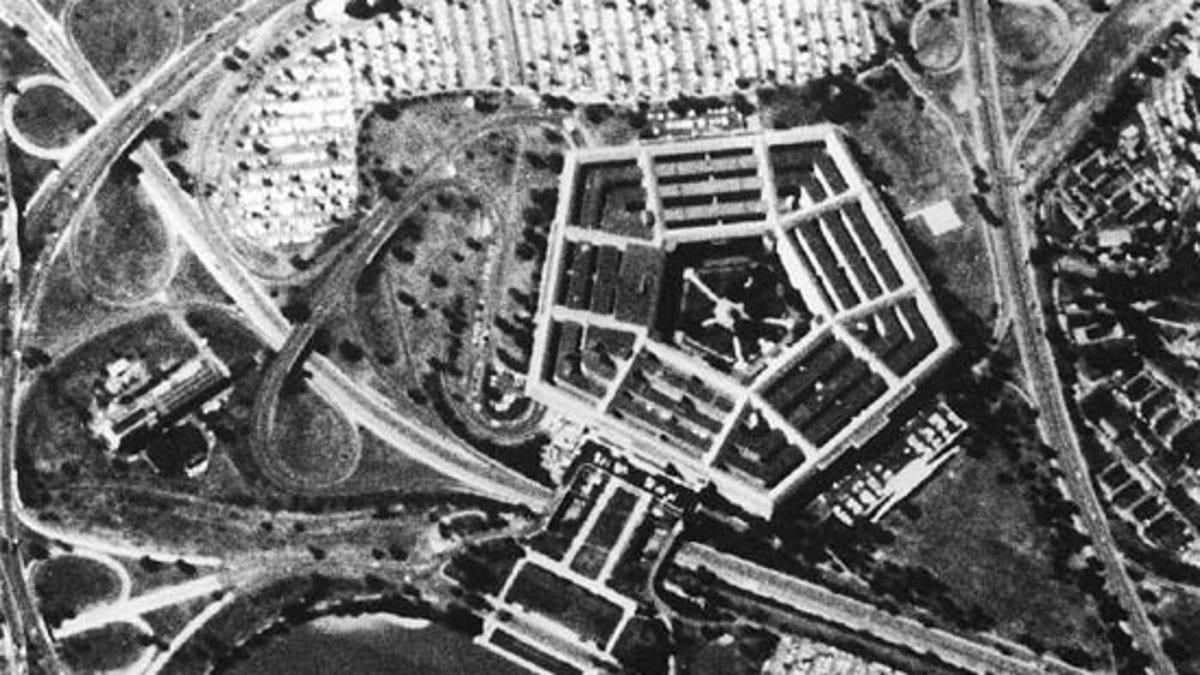Homeland Security: We're ready to launch spy satellite office
Despite privacy concerns from Congress, DHS Secretary Michael Chertoff says plans are underway to let police, border security, and other domestic agencies access detailed satellite imagery.
WASHINGTON--A plan to expand the number of government police and security agencies that can tap into detailed satellite images is proceeding, despite concerns from Congress, the head of the U.S. Department of Homeland Security said Wednesday.
During a roundtable discussion with bloggers and journalists here, Secretary Michael Chertoff said a "charter has been signed" to create a new office, which will serve as a clearinghouse for requests from law enforcement, border security, and other domestic homeland security agencies to view feeds from powerful satellites. It will be called the National Applications Office.
"I think the way is now clear to stand (the office) up and go warm on it," said Chertoff at Homeland Security's headquarters here.
Right now, these spy satellites are more commonly used for things like monitoring volcanic activity, hurricanes, floods, and various environmental and geological shifts. But the agency has said it sees important applications for the images in other areas within its purview, such as terrorism investigations and illegal immigration busts.
Originally, the
Chertoff said Wednesday that the department has completed the privacy impact assessments for the new office and should be releasing them within a few days. He said that members of Congress have received briefings and that he thinks there's a "good process in place to make sure there aren't any legal transgressions."
In the past, Homeland Security officials have downplayed the implications of allowing more agencies to access the satellites, arguing that in addition to scientific applications, the technique has already been employed from time to time by the Secret Service and FBI. For instance, when a well-publicized series of sniper attacks swept through the Washington, D.C., area in October 2002, the CIA and FBI were permitted to use images provided by the National Geospatial Intelligence Agency to look for places snipers might hide along highways along the east coast.
"I think we have fully addressed everybody's concerns," Chertoff said Wednesday. "We've made it clear this is not going to be interception of communications, verbal or oral or written. That's still going to be done under the traditional way."
The Homeland Security secretary, however, may not have that easy a time persuading congressional overseers.
Within the next few days, Reps. Jane Harman (D-Calif.) and Christopher Carney (D-Penn.), who lead Homeland Security subcommittees, are planning to send Chertoff a letter that says the new scheme still isn't ready for launch, a Democratic aide to the U.S. House of Representatives Homeland Security Committee, which oversees the department, told CNET News.com on Wednesday.
Committee leaders say the charter for the National Applications Office is "wholly inadequate," said the aide, who spoke on condition of anonymity since the letter is still being drafted. They plan to criticize the department for allegedly failing to outline the legal framework and other "standard operating procedures" governing the program.
Furthermore, the Government Accountability Office has not yet vetted the program's privacy guidelines, which was made a condition for the National Applications Office to receive congressional funding, the aide said.
On cybersecurity
Also at the roundtable discussion, Chertoff attempted to defuse concerns that Homeland Security's cybersecurity arm plans to "sit on the Internet," as he put it, and monitor traffic in a manner reminiscent of the Chinese government.
As part of its efforts to detect network intrusions in real time, Homeland Security has said it plans to expand use of an existing system known as Einstein, that will, among other things, monitor visits from Americans and foreigners visiting .gov Web sites. The set-up is in place at 15 federal agencies, but Chertoff has asked for $293.5 million from Congress in next year's budget to roll it out governmentwide.
In addition to outfitting federal networks with those tools, Chertoff said the government also plans to help companies to fend off cyberattacks by offering some of its "classified" intrusion detection tools--but such aid will be purely optional.
As for the department's broader strategy, "in some ways, it's more and better of what we're doing," Chertoff said. "In some cases, it may involve some additional things I can't talk about."
In addition, Chertoff spoke about the Real ID Act and the department's May 11 deadline--see our separate story.
